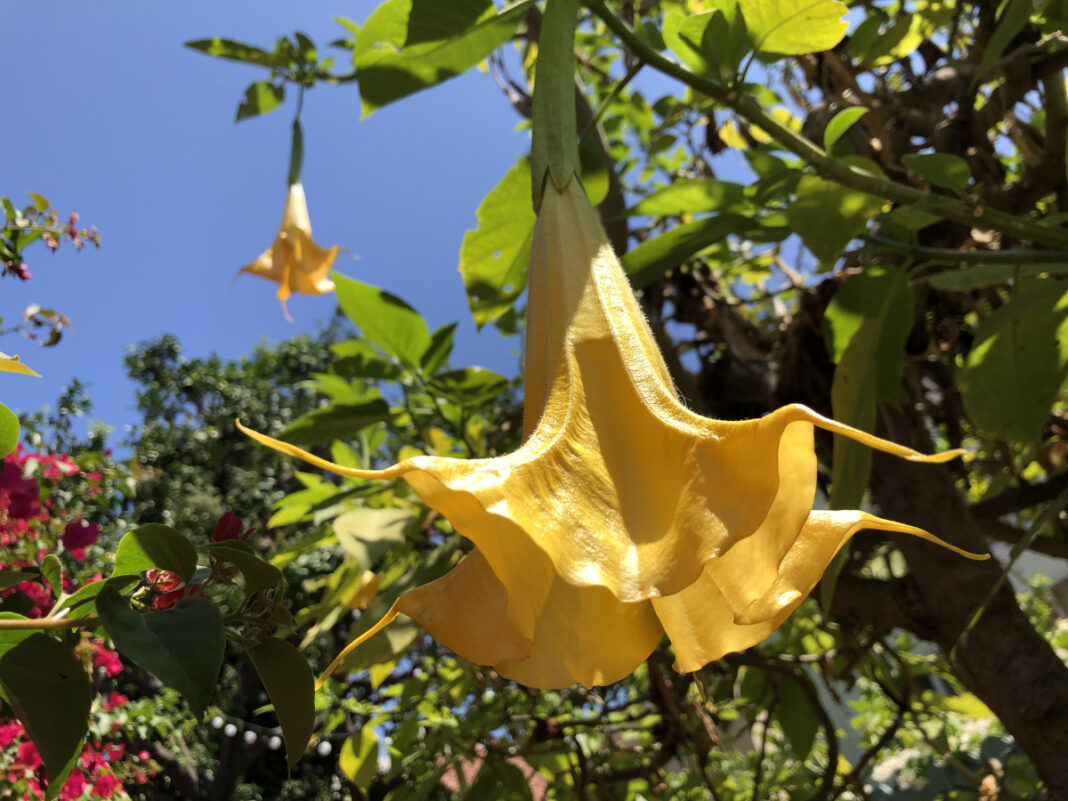UNITED STATES—“It’s the day.” “Today’s the day.” “I’ve been waiting all month for this.”
There they were in the Valle de Chamelecón, that could have been anywhere in the banana fields. They were all standing around the train tracks, shifting their weight from one leg to the other. With a carnal glee, they anticipated the arrival of the train. When it came to the platform at 11 a.m. its toots caused more excitement and happiness than seemed due to a train. The armored train, that resembled a steel armadillo, was protected by a group of men with automatic rifles.
Toooooooooooooooot tooooooooooooooooooot. . . . . .
Followed by the chugs over the long row of railroad ties.
On paydays the workers were jubilant. Work was suspended, the drudgery upended, as they expected the pay for their month’s sweat and toil. This one was a little different, because in back of the station, where there was a shed. The sweat was oozing as a man with a shovel dug the black soil where he would plant a co-worker of Antonio’s that had not been so lucky. His payday would go to his widow in San Pedro Sula. Je je, maybe she would get an eighth of it, by the time the small fortune trickled down through various hands to reach hers. And yet she would be grateful.
Since before the sun came out, the toiler of the banana fields had been gathering. The buhoneros, tax collectors, and military accompaniment, the con artists, the pimps, the vendors of adulterated liquor (payday so often translated to boozeday), people hawking lottery tickets men and women, standing there, drained here from neighboring cities and villages.
The field appeared to be a great marketplace on that occasion, a bazaar. The commissary was surrounded by men who needed to buy things. Many had firearms hidden under their shirts, and a great number of them carried their well sharpened machetes.
Antonio, girded by his fellow workers, headed for the pay train. The foreman Bermudez had already distributed ID cards on which he’d written wages earned. On one side they queued up to go to that little window with an iron bars, they received 50 pesos national currency (lempiras). The money jingle in their hands awoke in Antonio Aguilar a nostalgic reverie. Now it wasn’t memory of the sale of his land, his father’s land, to the Company. The money in his callused hands had a different value. It was the sale of his suffering to the Company, something altogether different and reprehensible. Antonio boiled inside. When stepping down from the pay train on a steep little ladder, he was accosted by an acned man with a fistful of coupons, demanding payment.
“Pay your school and transport taxes. Five lempiras.”
“Cononel, I already paid my taxes this year in the town.”
The collector observed with a haughty gesture. “I don’t understand what you’re saying.” This fellow knew Antonio Aguilar well, but pretended he didn’t know him. He carried a revolver on his belt, and at his feet lay a doctor’s bag of cowhide that held the money.
“Where are the comprobantes?”
“In the town, Coronel.”
“Hogwash. Pay up now or you get a free trip to jail.”
Given this attitude, and seeing that the soldiers circled around him like vultures wheeling in the sky, over a stricken cow, waiting to succumb to pick its flesh and innards clean. The coronel touched the grip of the knife in his hand impaciently (lodged in his rubber boots). There was no other alternative left to Aguilar than to pay the 15 lempiras, mentally deducting it from his earnings. The buhonero hawker of goods smiled at him.
“Don Antonio, behold all the merchandise that I have, dress shirts single needle tailored and work shirts, shoes made of special hide (the hawker neglected to say that the ‘special’ derived from its equestrian origins). Nice belts, Swiss wrist watches. What do I pick out for you?”
“Not now, amigo. Not till the next payday.”
He said it glumly, God, he though on in insides, God can’t you see they are harassing me. Just when it gets to be beyond endurance I find refuge.
“If you want, Don Antonio, I can give it to you on credit. You are well-known. Look at these snazzy pants.”
There was a pleasure in beholding the merchandise. There had to be some fruit for all the toil. Aguilar looked at the insecticide-blue clothes of a “poisoner” and the worn shoes perhaps on their third sole, but he vacillated before excepting the merchandise on time, given the insecurity of his work in the banana fields.
“Take the shoes, Don Antonio, you will look good in them when you go to the rooster fights. Those shoes were made for you. The radicalization of Antonio had not happened yet, but once he settled into the sacred belly of the Dollar Republic to the north, it seemed ludicrous that any body would fear socialism except as a mask for kleptocracy, since indeed there was an intrinsic spirit of trade instilled in the people. Here was this man in the middle of the jungle trying to convince Antonio that these poor old shoes, noble as street dogs, were Florsheim.
Antonio Aguilar grabbed some clodhoppers that were his size and left with them, practically fleeing.
To be continued…
Graydon is the Wizard of Fiction.






